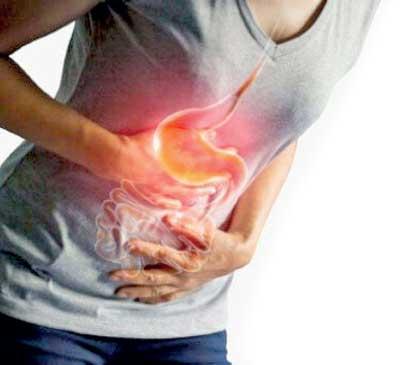09 Apr 2021 - {{hitsCtrl.values.hits}}
 ‘Gastritis’ means inflammation of the stomach lining. It can occur on its own or with Peptic ulcers which are wounds that can unsettle or cause pain to the stomach and can lead to internal bleeding. Peptic ulcers form when acid erodes the lining of the digestive tract.
‘Gastritis’ means inflammation of the stomach lining. It can occur on its own or with Peptic ulcers which are wounds that can unsettle or cause pain to the stomach and can lead to internal bleeding. Peptic ulcers form when acid erodes the lining of the digestive tract.
A bacterium in your stomach called Helicobacter pylori is the most common cause of gastritis, peptic ulcers and gastric cancer. In Sri Lanka about 70% of the population has H. Pylori in the stomach. H.Pylori causes the stomach to release more acid and disrupts the protective mucus lining in the stomach which causes damage to the stomach lining resulting in gastritis and ulcers.
The discovery that H. Pylori causes gastritis, has an interesting backstory. Dr.Barry J. Marshall and Dr.Robin Warren were the researchers who discovered the bacterium Helicobacter pylori and its role in gastritis and peptic ulcer disease. During their time, it was thought that stress and lifestyle factors were the major causes of peptic ulcer disease. When Warren and Marshall challenged that idea, stating that H. pylori, was the main cause for most of the cases of gastritis and of ulcers; the scientific community, met their findings with scepticism and much criticism. So, in order to prove that he was correct, Marshall deliberately swallowed the bacterium which then gave him gastritis a few days later. This proved his theory correct that it does in fact caused stomach illness. This extraordinary act of extreme dedication and commitment to his research generated one of the most radical and important impacts on our understanding of stomach diseases and won Warren and Marshall the Nobel prize in Physiology and medicine in 2005.
What are the symptoms of H. pylori infection?
Most people with H. pylori infection and chronic gastritis have no symptoms. However, some people develop more serious problems, including ulcers and can have the following symptoms
Less commonly, chronic gastritis causes abnormal changes in the stomach lining, which can lead to certain forms of cancer.

Testing for H. pylori infection
Although H. pylori infection is the most common cause of gastritis and peptic ulcers, not all patients with ulcers have H. pylori. There are several factors, including medications called NSAIDs that can also cause peptic ulcers
The most commonly used tests to diagnose H. Pylori infection include the following:
Upper endoscopy is most used to diagnose ulcers and a biopsy sample can also be taken to check for H. pylori infection and possible cancer cells.
Breath tests — Here you drink a solution containing a substance that is broken down by the H. pylori bacteria. The breakdown products can be detected in your breath.
Stool tests — Tests are available that detect H. pylori proteins in stool.
Blood tests — Blood tests can detect antibodies that the body's immune system develops in response to the H. pylori bacteria.
Treatment of H. pylori infection
H. pylori is treated with several medications, including antibiotics to kill the bacteria and an acid-suppressing medication called a proton pump inhibitor. These will be given for an extended period to ensure eradication of the infection. After completion of initial treatment, you will be tested again to see if the infection persists and if so, further treatment is needed. Long-term maintenance treatment is required in some patients. Ulcers can recur in the absence of successful H pylori eradication.
If any complications of ulcers such as bleeding or perforation are present, they will be treated separately.
If you are taking any NSAID medications, you will be advised to stop them. The other things you can do to relieve symptoms and help ulcers to heal are quitting smoking, and alcohol consumption and taking antacids if prescribed.
(The writer is a fourth year undergraduate at the Faculty of Medicine, University of Kelaniya)
21 Dec 2024 27 minute ago
21 Dec 2024 2 hours ago
21 Dec 2024 5 hours ago
21 Dec 2024 5 hours ago
21 Dec 2024 6 hours ago